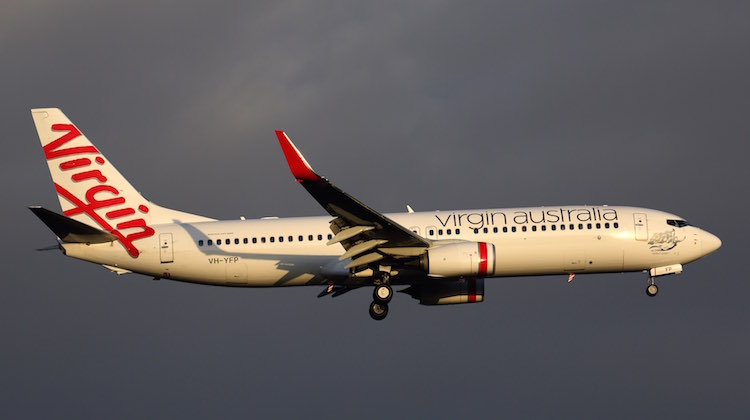
Air New Zealand and Virgin Australia say they are looking to buy locally-produced aviation biofuel as part of a new partnership.
In a boost for the aviation biofuel sector in this part of the world, the trans-Tasman alliance partners said on Monday they have released a request for information (RFI) to the market for aviation biofuel.
Virgin head of sustainability Robert Wood said helping develop aviation biofuel production would reduce emissions and build “long-term fuel security for the sector”.
“We are seeing the development of the aviation biofuel industry accelerate internationally but that is not yet the case for our region,” Wood said in a statement.
“We are confident that our collaboration with Air New Zealand to procure a large volume of aviation biofuel will de-risk investment in the sector, creating high-tech, high-skilled jobs in the region.”
Air New Zealand chief flight operations and safety officer David Morgan said the RFI was part of the airline’s carbon management program.
“By working in partnership with our alliance partner Virgin Australia we hope we can stimulate the local market, drive innovation and investment and potentially uncover a sustainable biofuel supply suitable for our respective operations,” Captain Morgan said in a statement.
Interested parties have until 30 May 2016 to express their interest in the Air NZ/Virgin RFI.
The International Civil Aviation Organisation (ICAO) target for the industry is to achieve carbon neutral growth by 2020, and a 50 per cent reduction in CO2 emissions by 2050.
Moreover, the International Air Transport Association (IATA) has set a target of 10 per cent alternative fuels by 2017 and aspirations to build an aircraft that produced no emissions within 50 years.
ICAO recently announced a CO2 emissions standard, following six years of negotiations, where aircraft will have to meet a maximum fuel burn per flight kilometre baseline, which must not be exceeded. The standard would apply to new aircraft designs from 2020, while new deliveries of current in-production aircraft models would be subject to the CO2 standard from 2023.
Further, the ICAO measure also recommended a cut-off date of 2028 for production aircraft that did not comply with the standard.
“The goal of this process is ultimately to ensure that when the next generation of aircraft types enter service, there will be guaranteed reductions in international CO2 emissions,” ICAO Council President Olumuyiwa Benard Aliu said in a statement on February 8.
“Our sector presently accounts for under two percent of the world’s annual CO2 emissions, but we also recognise that the projected doubling of global passengers and flights by 2030 must be managed responsibly and sustainably.”
IATA chief executive Tony Tyler said the agreement on a CO2 standard was a significant milestone towards meeting the industry’s carbon emissions targets.
“The CO2 Standard does not solve aviation’s climate challenge on its own, but it is an important element in our comprehensive strategy for tackling carbon emissions,” Tyler said in a statement.
“The next milestone will be the implementation of a market-based measure to address CO2 emissions, which we hope to see agreed at the ICAO Assembly in September.”
















GNCORP
says:If there is a demand for biofuels or alternatives from what is used now, be it from the aviation industry to auto and transportation and it does exactly what is used now then it would be considered but if it out performs as in lower running cost or more power, then it would be used. The other problem is it being available on demand as what is used now, these are the many things that bioduels/alternatives need to address if it will become the dominate energy source.
Dermott
says:Don’t fancy flying over Antarctica to Buenos Aires on prune juice